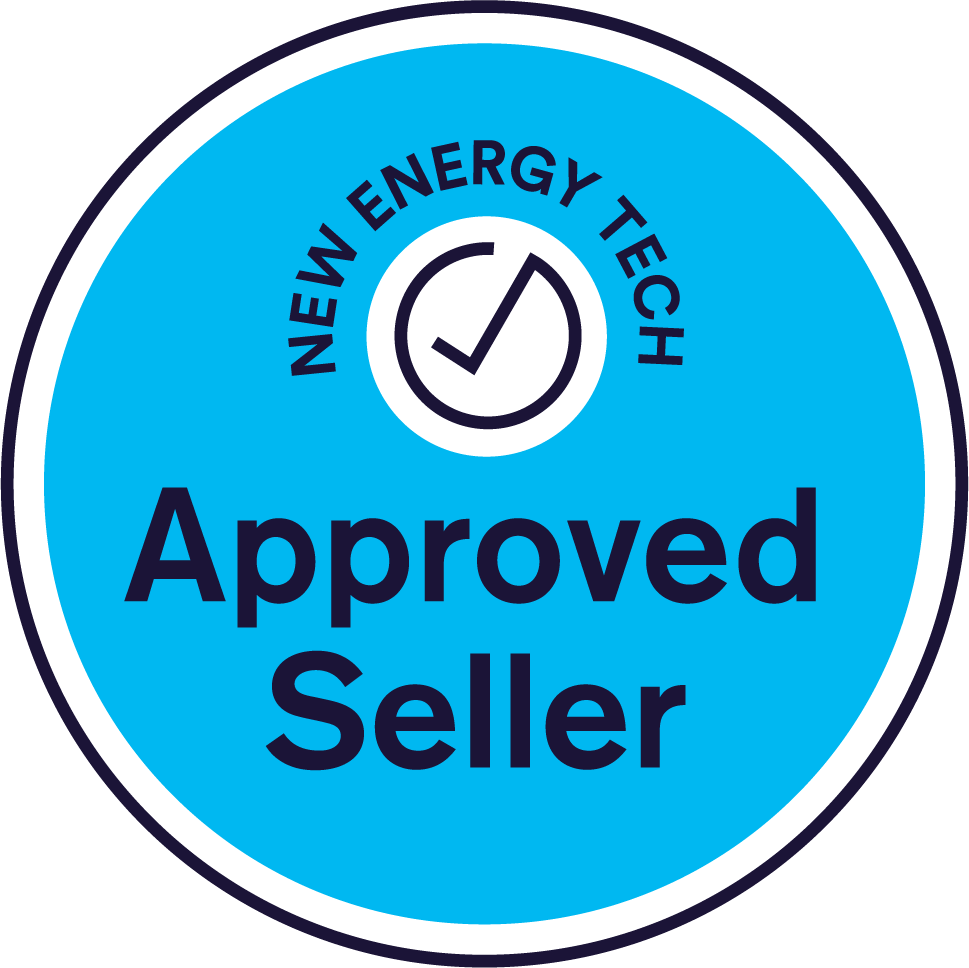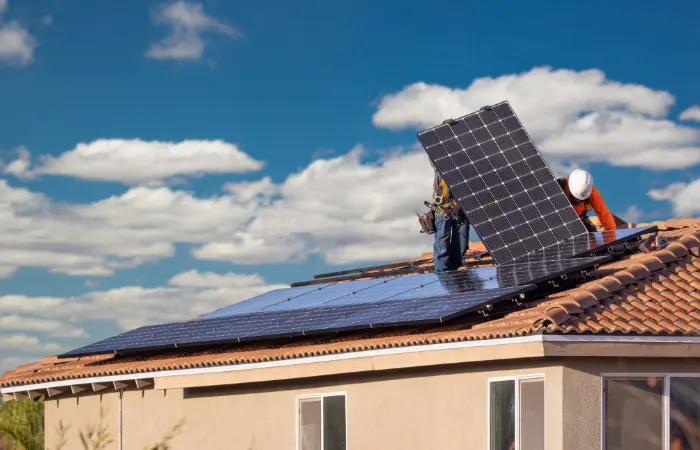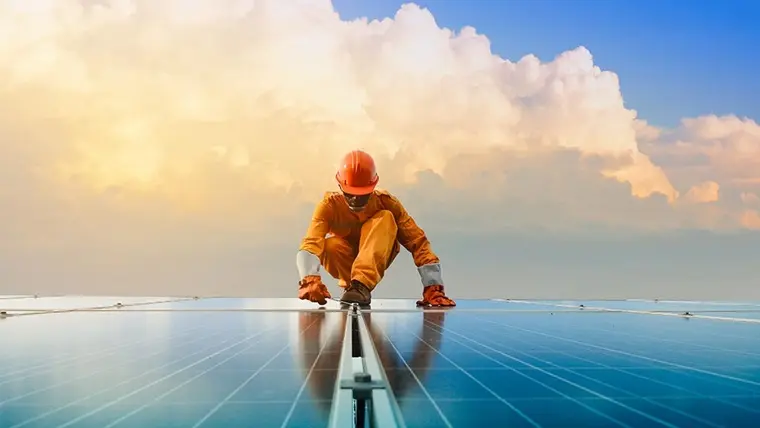Growing Popularity of Solar Energy in Australia
Australia is rapidly becoming a global leader in solar energy adoption. With abundant sunshine, favourable government policies, and increasing awareness of environmental issues, more Australians are turning to solar power to meet their energy needs. The shift towards renewable energy is not only reducing carbon footprints but also offering significant savings on electricity bills. As of now, millions of households across the country have installed solar panels, contributing to a cleaner and more sustainable future.
Importance of Choosing Quality Solar Panels and Professional Installation
While the benefits of solar energy are clear, the quality of the solar panels and the expertise of the installation can significantly impact the performance and longevity of your solar power system. High-quality solar panels ensure better efficiency and durability, while professional installation guarantees that the system is set up correctly to maximize energy production and safety. Poor-quality panels or substandard installation can lead to frequent breakdowns, lower energy output, and potential safety hazards.
Purpose of the Blog
This blog aims to guide you through the process of finding and choosing the best solar panels and installers in Australia. Whether you are considering solar energy for the first time or looking to upgrade your existing system, this comprehensive guide will provide you with the information you need to make informed decisions. From understanding the different types of solar panels and their efficiency to evaluating installers and comparing quotes, we will cover all the essential aspects to help you navigate the solar market with confidence.
Understanding Solar Panels
Types of Solar Panels
When considering solar panels for your home or business, it’s crucial to understand the different types available. Each type has its own advantages and drawbacks, affecting performance, cost, and suitability for your specific needs.
Monocrystalline
Monocrystalline solar panels are made from single-crystal silicon. This type of panel is known for its high efficiency and long lifespan. Key characteristics include:
- Efficiency: Typically around 15-20%, making them the most efficient type of solar panels.
- Appearance: They have a uniform black color, which is often preferred for aesthetic reasons.
- Performance: Performs better in low-light conditions compared to other types.
- Cost: Generally more expensive due to the manufacturing process, which involves growing single-crystal silicon.
Polycrystalline
Polycrystalline solar panels are made from silicon crystals that are melted together. While they are less efficient than monocrystalline panels, they offer a more affordable option. Key characteristics include:
- Efficiency: Typically around 13-16%, slightly lower than monocrystalline panels.
- Appearance: They have a blue, speckled look due to the various crystals in the silicon.
- Performance: Less efficient in low-light conditions but still effective for most applications.
- Cost: More cost-effective due to simpler manufacturing processes.
Thin-film
Thin-film solar panels are made by depositing one or more layers of photovoltaic material onto a substrate. They are flexible and lightweight, offering unique advantages for certain applications. Key characteristics include:
- Efficiency: Typically around 10-12%, lower than both monocrystalline and polycrystalline panels.
- Appearance: They have a uniform appearance and can be made to look like traditional roofing materials.
- Performance: Performs well in high temperatures and partial shading but requires more space due to lower efficiency.
- Cost: Generally the least expensive option, though this can vary based on the specific materials used.
Understanding these types of solar panels will help you make an informed decision based on your budget, space availability, and energy needs.

Efficiency and Durability
Explanation of Solar Panel Efficiency
Solar panel efficiency refers to the ability of a solar panel to convert sunlight into usable electricity. It is expressed as a percentage, indicating the portion of solar energy that the panel can transform into electrical power. For example, a panel with 20% efficiency converts 20% of the sunlight it receives into electricity. Higher efficiency means more energy output from a given area, which is crucial for maximizing power generation, especially in limited spaces.
Factors affecting the durability of solar panels
The durability of solar panels is influenced by several factors, ensuring that they can withstand environmental conditions and continue to perform effectively over time. Key factors include:
- Material Quality: High-quality materials, such as tempered glass and corrosion-resistant aluminum frames, enhance durability.
- Manufacturing Process: Advanced manufacturing techniques ensure better panel integrity and longevity.
- Environmental Conditions: Panels must withstand extreme temperatures, hail, heavy winds, and snow loads. Panels are often tested for these conditions and certified accordingly.
- Maintenance: Regular cleaning and maintenance help in prolonging the life of solar panels by preventing damage from dirt, debris, and other contaminants.
- Installation Quality: Proper installation reduces the risk of damage and ensures that panels are securely mounted and positioned optimally.
Comparison of Different Types in Terms of Efficiency and Lifespan
Each type of solar panel varies in terms of efficiency and lifespan, impacting overall performance and cost-effectiveness.
- Monocrystalline Solar Panels
- Efficiency: 15-20%
- Durability: Known for their long lifespan, often over 25 years.
- Pros: High efficiency, good performance in low-light conditions, long-lasting.
- Cons: Higher cost.
- Polycrystalline Solar Panels
- Efficiency: 13-16%
- Durability: Typically have a slightly shorter lifespan compared to monocrystalline panels, but still around 25 years.
- Pros: More affordable than monocrystalline, adequate performance for most conditions.
- Cons: Lower efficiency, less effective in low-light conditions.
- Thin-film Solar Panels
- Efficiency: 10-12%
- Durability: Generally have a shorter lifespan, around 10-20 years, depending on the materials used.
- Pros: Flexible, lightweight, good performance in high temperatures and shading.
- Cons: Lower efficiency, requires more space, shorter lifespan compared to crystalline panels.
Understanding the efficiency and durability of different types of solar panels helps in choosing the right option for your energy needs and budget. Monocrystalline panels offer high efficiency and long-term reliability, making them ideal for those with limited space and a higher budget. Polycrystalline panels provide a balance between cost and performance, suitable for most residential installations. Thin-film panels offer flexibility and affordability, but their lower efficiency and shorter lifespan make them better suited for specific applications where space is less of a constraint.

Key Factors to Consider When Choosing Solar Panels
Quality and Brand Reputation
Importance of Selecting Reputable Brands
Choosing a reputable brand for your solar panels is crucial for ensuring reliability, performance, and after-sales support. Reputable brands often have a proven track record of quality and customer satisfaction, investing in research and development to provide advanced, durable products. Additionally, well-known brands are more likely to honor warranties and provide comprehensive customer service.
Popular and Reliable Solar Panel Brands in Australia
In Australia, several brands are known for their high-quality solar panels. Some of the most popular and reliable brands include:
- LG Solar: Known for high efficiency and long warranties, LG panels are a premium option.
- SunPower: Offers some of the highest efficiency panels on the market with excellent durability.
- Canadian Solar: Provides a balance between cost and performance, making them a popular choice for residential and commercial installations.
- Trina Solar: Known for affordability and solid performance, widely used across Australia.
- REC Group: Offers high-quality, reliable panels with strong warranties and good performance.
Warranty and Certification
Types of Warranties
Performance Warranty: Guarantees a certain level of energy production over a specified period, typically 25 years. It ensures that the panel will produce a percentage of its original capacity (e.g., 80% after 25 years).
Product Warranty: Covers defects in materials and workmanship, usually ranging from 10 to 25 years. This warranty ensures that the panels are free from manufacturing defects.
Relevant Certifications and Standards
When choosing solar panels, look for certifications that indicate compliance with industry standards:
- Clean Energy Council (CEC) Accreditation: Ensures that the panels meet Australian standards and are eligible for government incentives.
- International Electrotechnical Commission (IEC) Certifications: Such as IEC 61215 (performance) and IEC 61730 (safety), which guarantee the panels have passed rigorous testing for durability and safety.
- UL Certification: Indicates that the panels have met safety standards set by Underwriters Laboratories.
Performance in Local Conditions
Understanding How Australia’s Climate Affects Solar Panel Performance
Australia’s diverse climate can significantly impact solar panel performance. Factors such as high temperatures, strong sunlight, and occasional hailstorms need to be considered:
- High Temperatures: While sunlight increases energy production, extreme heat can reduce panel efficiency. Panels with better temperature coefficients perform more consistently in hot conditions.
- Hail and Extreme Weather: Panels need to be robust enough to withstand hail and other severe weather events common in some parts of Australia.
- Tips for Choosing Panels Suited to Local Weather Conditions
- Look for Robust Construction: Panels with tempered glass and sturdy frames are better suited to withstand harsh weather conditions.
- Check the Temperature Coefficient: A lower temperature coefficient indicates that the panel will lose less efficiency in high temperatures.
- Consider Bifacial Panels: These can capture sunlight from both sides, potentially increasing energy production in areas with reflective surfaces like sand or concrete.
- Opt for High Wind and Hail Resistance Ratings: Ensure the panels are certified to withstand the specific weather conditions typical in your region. By considering these key factors, you can choose solar panels that not only meet your energy needs but also offer long-term performance and durability suited to Australia’s unique climate conditions.

Finding a Quality Solar Installer
Research and Recommendations
Sources for Researching Installers
When looking for a quality solar installer, it’s essential to conduct thorough research. Here are some valuable sources:
- Online Reviews: Websites such as SolarQuotes, ProductReview, and Google Reviews provide insights into customer experiences with various installers.
- Forums and Discussion Boards: Platforms like Whirlpool and Reddit have communities where users share their experiences and recommendations.
- Industry Websites: The Clean Energy Council (CEC) website lists accredited installers, ensuring they meet industry standards.
Asking for Recommendations
Personal recommendations can be highly reliable:
- Friends, Family, and Neighbors: Ask people you know who have installed solar panels about their experiences. Personal accounts can provide insights into the quality of work and customer service.
- Local Community Groups: Community groups or local social media pages often have discussions about local service providers, including solar installers.
Checking Credentials and Experience
Importance of Choosing Clean Energy Council Accredited Installers
- Accreditation: CEC accreditation ensures that installers have undergone the necessary training and adhere to industry standards. Using an accredited installer is often a requirement for receiving government rebates and incentives.
- Quality Assurance: Accredited installers are committed to maintaining high standards of workmanship and customer service.
Evaluating Installer Experience and Past Projects
- Experience: Look for installers with several years of experience in the industry. Experienced installers are more likely to handle complex installations and unexpected issues effectively.
- Portfolio of Past Projects: Ask to see examples of previous installations. This can give you an idea of their expertise and the quality of their work.
- Customer Testimonials and Case Studies: Reviewing customer testimonials and detailed case studies can provide additional insights into the installer’s performance and reliability.
Comparing Quotes
Requesting Quotes from Multiple Installers
- Multiple Quotes: Obtain quotes from at least three different installers to compare pricing and services. This helps you understand the market rate and identify any outliers.
- Site Assessment: A thorough site assessment should be part of the quote process. Installers should visit your property to assess factors such as roof condition, shading, and orientation.
What to Look for in a Quote
- Cost Breakdown: Ensure the quote includes a detailed cost breakdown, covering the price of solar panels, inverters, mounting systems, installation labor, and any additional costs.
- Installation Timeline: Look for a clear timeline outlining the expected start and completion dates of the installation.
- Warranties: Pay attention to the warranties offered for both the solar panels and the installation work. This includes product warranties, performance guarantees, and workmanship warranties.
- After-Sales Support: Check if the installer provides after-sales support and maintenance services. Ongoing support can be crucial for the long-term performance of your solar system.
By thoroughly researching and comparing different solar installers, you can ensure that you select a reputable professional who will provide quality installation services, thereby maximizing the performance and longevity of your solar power system.

Evaluating Solar Panel Systems and Installation Packages
Complete Solar Solutions
Understanding What a Complete Solar Package Includes
A complete solar package typically encompasses all the necessary components and services to set up a fully functioning solar power system. Key elements include:
- Solar Panels: The primary component that converts sunlight into electricity.
- Inverters: Devices that convert the direct current (DC) produced by solar panels into alternating current (AC) used by household appliances.
- Mounting Systems: Structures that securely attach solar panels to the roof or ground, designed to optimize panel orientation and angle for maximum sunlight exposure.
- Monitoring Systems: Tools and software that track the performance of your solar system, providing real-time data on energy production and consumption.
- Battery Storage (Optional): Batteries store excess solar energy for use during periods of low sunlight or at night, enhancing energy independence and security.
- Installation Services: Professional installation ensures that all components are correctly and safely set up, maximizing efficiency and safety.
- Warranties and Support: Comprehensive warranties for panels, inverters, and installation work, as well as ongoing customer support and maintenance services.
Benefits of Choosing a Full-Service Provider
Opting for a full-service provider offers several advantages:
- Streamlined Process: A single point of contact simplifies the process from initial consultation to installation and beyond.
- Integrated Solutions: Full-service providers ensure that all components are compatible and optimized to work together, enhancing overall system efficiency and reliability.
- Professional Expertise: Access to a team of experts who handle all aspects of the installation, from site assessment and design to commissioning and maintenance.
- Comprehensive Warranties: Full-service providers often offer better warranties and support services, providing peace of mind and long-term protection for your investment.
- Financing Options: Many full-service providers offer flexible financing solutions to make solar more affordable.
Financing and Incentives
Overview of Financing Options
Investing in solar panels can be a significant upfront expense, but various financing options can make it more accessible:
- Loans: Solar loans are available from banks, credit unions, and specialized solar financing companies. They allow you to spread the cost of the solar system over several years, often with low-interest rates.
- Leasing: Solar leasing involves renting the solar power system from a provider. You pay a fixed monthly lease payment, and the provider is responsible for installation and maintenance.
- Power Purchase Agreements (PPAs): With a PPA, a third-party company installs and maintains the solar system on your property. You purchase the generated electricity at a predetermined rate, typically lower than the standard utility rate.
- Green Energy Programs: Some utility companies and financial institutions offer special programs and incentives to encourage solar adoption, including low-interest loans and rebates.
Government Incentives and Rebates Available in Australia
Australia offers several incentives and rebates to promote solar energy adoption:
- Small-scale Technology Certificates (STCs): Part of the federal Renewable Energy Target (RET) scheme, STCs provide financial incentives for installing solar systems. The number of STCs depends on the size of the system and the location, effectively reducing the upfront cost.
- Feed-in Tariffs (FiTs): State-based schemes that pay solar system owners for the excess electricity they export to the grid. The rates and conditions vary by state and energy retailer.
- State Incentives: Various state governments offer additional incentives, rebates, and interest-free loans to support solar installations. For example, the Victorian Solar Homes Program provides significant rebates and interest-free loans for eligible households.
- Tax Incentives: Businesses can benefit from tax incentives such as accelerated depreciation (the instant asset write-off) for solar systems, reducing taxable income and improving cash flow.
By understanding and leveraging these financing options and government incentives, you can make solar energy more affordable and financially viable, accelerating your return on investment and contributing to a more sustainable future.
Conclusion
Recap of Key Points
In this blog, we’ve covered essential aspects of finding quality solar panels and installation services in Australia:
- Understanding Solar Panels: We explored the different types of solar panels—monocrystalline, polycrystalline, and thin-film—along with their efficiency and durability.
- Key Factors to Consider: Important considerations include the quality and reputation of brands, warranties, certifications, and how panels perform in local conditions.
- Finding a Quality Solar Installer: Tips for researching installers, checking credentials, and comparing quotes to ensure you choose a reliable professional.
- Evaluating Solar Panel Systems and Installation Packages: Understanding complete solar solutions, financing options, and government incentives to make solar more accessible and affordable.
- Installation Process: The steps involved from pre-installation assessment to post-installation checks and maintenance, ensuring a smooth and efficient setup.
Australia’s abundant sunshine and supportive policies make it an ideal place to harness solar energy. By taking the time to find quality solar panels and professional installation services, you can enjoy these benefits and contribute to a greener future. Investing in solar energy is a step towards sustainability, cost savings, and energy independence—making it a wise choice for any Australian household or business.

